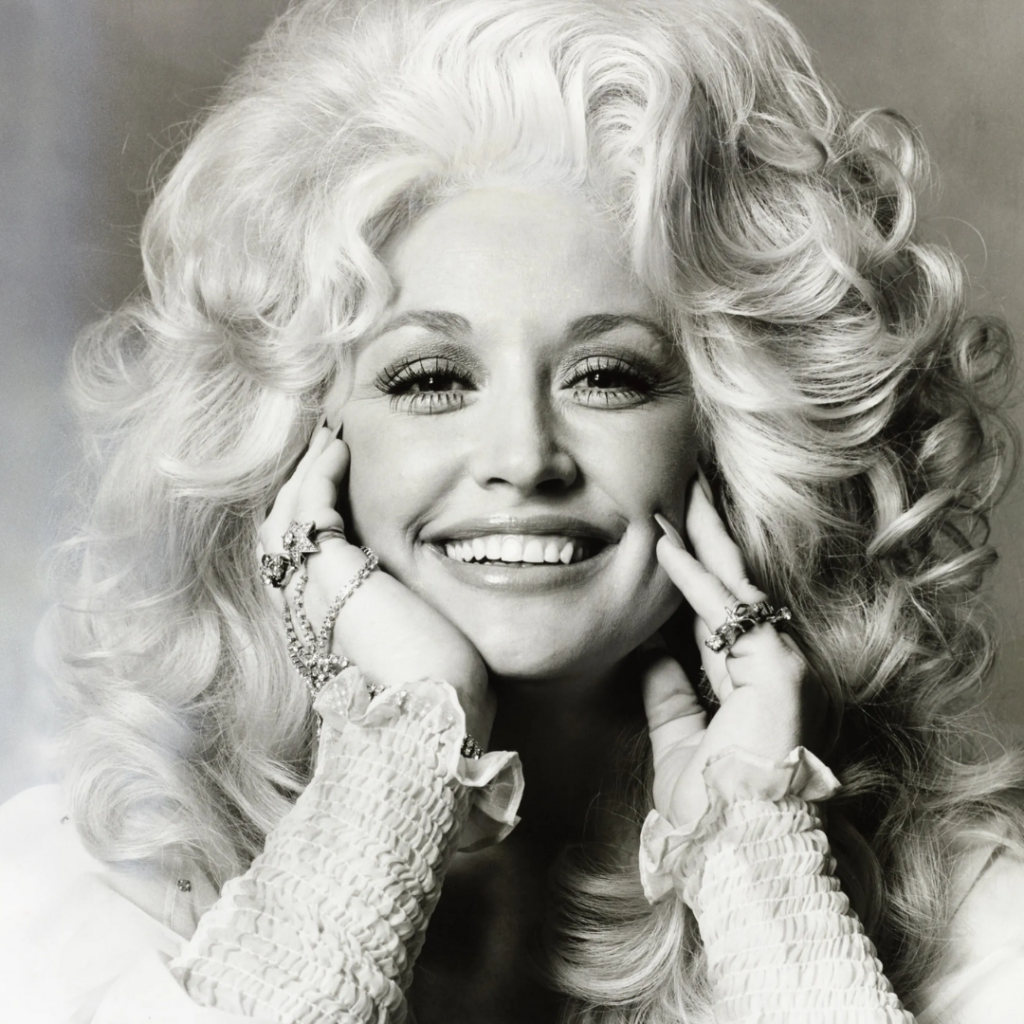In 1967 the country music industry was introduced to the gentle melodic voice of Dolly Parton for the first time. This came in the form of her debut album ‘Hello, I’m Dolly’ which gave Parton her first top 40 hits, ‘Dumb Blonde’ and ‘Something Fishy’. In 2020 Dolly released her 47th studio album and 64th album overall, ‘A Holly Dolly Christmas’. Over the span of 7 decades, Dolly has solidified herself in country music and the entertainment industry as a whole. Few musicians in history have reached the heights that Dolly has, she’s a critically acclaimed actress, businesswoman, philanthropist, and most notably one of the most accomplished songwriters in the history of music. Dolly is also one of the most universally well-loved musicians by the gay community who have adopted Parton as a gay icon.
On the face of things this may seem a bit of an unusual fit, Dolly is predominantly a country artist, a genre of music which is known for not being the most socially liberal and is from the Smokey Mountains of Tennessee, again a very conservative area. Yet still despite, or maybe even because of these origins, Dolly is one of the original gay icons. Looking at her career and the persona Parton has can shed some light on why this is.
The early days of Dolly’s career are defined by earnest and moving songwriting that offer some of the most astute commentaries on what it means to be a woman in rural America. Songs like ‘Down From Dover’, ‘The Bridge’, and ‘Coat of Many Colors’ talk about the difficulties of life as a woman and as a person from a poor background and turn these narratives into beautifully moving and emotive songs. Dolly’s songwriting shows a radical honesty about the gripes of life as a woman in the American South that you can feel intimately connected to even if you aren’t a woman or from the same area as her. This honesty followed Dolly throughout her career, and it is her authenticity and candid and unapologetic musical voice that appeals to so many in the queer community. Her ability to disarm anyone through her unwavering sense of self and her dedication to sharing deeply moving stories in her music appeal to a community that so often is socialised to think that to be yourself is dangerous and to share your stories is a fool’s errand. So much of Parton’s discography is a rallying call to the queer community to embrace the beauty of the stories they have to tell, just as Dolly has.
Another aspect of Parton which makes her a blueprint for admiration in the gay community is her ability to transcend an era through her easily identifiable style and public persona. Dolly is one of the most astute media personalities of the past 60 years and has one of the sharpest intellects of any entertainer. Routinely she is discredited as an unserious artist, unaware of the media perception of her and her look, yet Dolly is the most in on the joke, projecting and monetising the negative and delegitimising reputation given to her by male media pundits and flipping that on its head. So much of this spawns from Dolly’s look, with big blonde hair and large breasts she is discredited as a joke by many men. Despite this Dolly has proudly stated throughout her career how she was inspired by a sex worker and has not compromised on how she wants to present herself. This is something that was unheard of in the 1960s and 1970s in Nashville where the country music industry was and still is incredibly male-dominated.
Dolly is the first to disarm a comment about her outlandish look and assert her power over her career and her image through a joke or a witty comment. This tactic is something many after her have utilised to circumvent the assault course of sexism in the media and this is something that establishes her as a pioneer. This is something gay people respond to as a community that gravitates towards women with astute intellect and self-awareness. This same quality is exemplified in other gay icons like Cher, Lady Gaga, Madonna, and Nicki Minaj who all in one way or another use the same tactic as Dolly to deject underestimation quickly.
The queer community really gravitates towards women who are astronomically successful. Dolly is undeniably successful, she is to this day one of the most respected songwriters in the music industry and she is a tour de force of business. From making a brave move to leave Porter Wagoner’s show after 7 years to follow bigger and better things to buying a failing theme park and turning it into a bonafide economic miracle, Dolly has made countless astute business decisions that set her apart from contemporaries. Dolly has crafted herself into one of the most successful brands in pop culture history. This perseverance and perseverance while being authentically yourself is something that gay people can connect to so deeply because it is too often the case that LGBTQ+ people are not able to reach a position where they can be successful and not compromise who they are in the process. Dolly is almost a beacon of hope that it is possible to be feminine, outlandish, authentic, and unapologetic and still be successful.
Dolly Parton is for many LGBTQ+ people, particularly from rural and conservative areas, proof that those of us who defy the norms of the places we come from can persevere and make something of ourselves. Parton has throughout her career defined what it means to be a gay icon through this quality that she possesses. She is marked by her unapologetic character, groundbreaking talent, and sharp business acumen that is unparalleled by anyone in the music industry. It is this that makes Dolly Parton the original gay icon.
